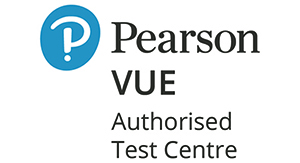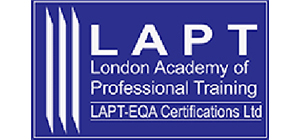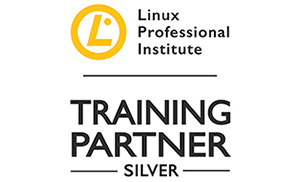Information Security Management Principles Foundation Training
Information Security Management Principles Foundation Course
BCS Foundation Certificate in Information Security Management Principles certification training course is ideal for individuals who are interested in developing an understanding of information security, whether as a career or for general business knowledge and would like to apply their learnings from this certification training course within their organisation.
In this training course, candidates will learn about IS management issues including risk management, security standards, legislation and business continuity.
The certification training course for Foundation Certificate in Information Security Management Principles includes learning about the current national legislation and regulations which impact upon information security management. It covers the current national and international standards, frameworks and organisations which facilitate the management of information security, and the current business and common technical environments in which information security management must operate.
Topics covered during the Information Security Management Principles certification training course are Information Security Management Principles, Information Risk, Information Security Framework, Security Lifecycle, Procedural/People Security Controls, Technical Security Controls, Physical and Environmental Security Controls, Disaster Recovery and Business Continuity Management, other Technical Aspects, and qualifies them to demonstrate these skills and knowledge within an organisation.
The BCS Foundation Certificate in Information Security Management Principles certification training course is provided at Melbourne, Sydney, Brisbane, Adelaide, Canberra, and Perth. The training for this certification course can be delivered both in-house and live (online).
There are no pre-requisites for this course.
- Professionals interested in information security management
- IT Managers
- Senior Managers
Information Security Management Principles Foundation course material provided
Candidates can achieve this certification after passing the following exam(s).
- CISMP: BCS Foundation Certificate in Information Security Management Principles
The certification exam can be registered and attempted within 3 months of course/module completion at Logitrain training centre on weekdays during business hours (excludes public holidays).
- Information Security Management Principles
- Information Risk
- Information Security Framework
- Security Lifecycle
- Procedural/People Security Controls
- Technical Security Controls
- Physical and Environmental Security Controls
- Disaster Recovery and Business Continuity Management
- Other Technical Aspects
This course is likely to add to the employment-related skills of the participants. The skills developed are likely to be used in the course of being an employee or working in a business.
- Identify definitions, meanings and use of concepts and terms across information security management
- Explain the need for, and the benefits of information security
- Threats and vulnerabilities lead to risks
- Threats and vulnerabilities apply specifically to IT systems
- The business must assess the risks in terms of the impact suffered by the organisation should the risk materialise
- To determine the most appropriate response to a risk and the activities required to achieve the effective management of risks over time
- Explain how risk management should be implemented in an organisation
- The organisation’s management of information security
- Organisational policy, standards and procedures
- Information security governance
- Information security implementation
- Security incident management
- Interpret general principles of law, legal jurisdiction and associated topics as they affect information security management covering a broad spectrum from the security implications on compliance with legal requirements affecting business (e.g. international electronic commerce) to laws that directly affect the way information can be monitored and copied.
- Describe the number of common, established standards and procedures that directly affect information security management
- Demonstrate an understanding of the importance and relevance of the information lifecycle
- Identify the following stages of the information lifecycle.
- Outline the following concepts of the design process lifecycle including essential and non-functional requirements
- Demonstrate an understanding of the importance of appropriate technical audit and review processes, of effective change control and of configuration management
- Explain the risks to security brought about by systems development and support
- Explain the risks to information security involving people
- Describe user access controls that may be used to manage those risks
- Identify the importance of appropriate training for all those involved with information
- Outline the technical controls that can be used to help ensure protection from Malicious Software
- Identify information security principles associated with the underlying networks and communications systems
- Recognise the information security issues relating to value-added services that use the underlying networks and communications systems
- Recall the information security issues relating to organisations that utilise cloud computing facilities. Cloud computing is location independent computing providing off-site resources, (e.g. services, applications and storage facilities)
- Define the following aspects of security in information systems, including operating systems, database and file management systems, network systems and applications systems and how they apply to the IT infrastructure
- Outline the physical aspects of security available in multi-layered defences and explain how the environmental risks to information in terms of the need, for example, for appropriate power supplies, protection from natural risks (fire, flood, etc.) and in the everyday operations of an organisation
- Describe (K1/2) the differences between and the need for business continuity and disaster recovery
- Demonstrate understanding of the principles and common practices, including any legal constraints and obligations, so they can contribute appropriately to investigations

Get a certificate of attendance to prove your commitment to learning

Take the certification exam within 3 months of course / module completion

Course material in digital format is included for flexibility and ease of use

Mock test is included in the full-time courses to assist with your preparation

Our trainers are highly skilled with expertise and extensive hands-on experience

Relax, we will beat competitor’s advertised price in Australia. Our course has no extra costs
| Location | Type | Duration | Price | Dates | |
|---|---|---|---|---|---|
| Location | Type | Duration | Price | Dates |
The supply of this course/package/program is governed by our terms and conditions. Please read them carefully before enrolling, as enrolment is conditional on acceptance of these terms and conditions. Proposed dates are given, courses run subject to availability and minimum registrations.
Find out why we are the leading choice to help boost your career in Australia
| Approachable and knowledgeable; comfortable surroundings. Logitrain does make IT training easier |
I recently followed the ITIL Foundation course at Logitrain. The training, materials and facilities were excellent and I would not hesitate to train with Logitrain again.
Thanks for a great week! Really enjoyed and feel I picked up a lot. Great Trainer! Will definitely look at further studies here.
Well-presented and able to convey immense knowledge to class. All queries were responded to promptly.
Excellent teaching method, easy to understand.
Logitrain provided a valuable insight into ITIL and enabled me to excel and advance my knowledge through a simple and well organised series of sessions.
Great place to study for certification, knowledgeable persons, excellent customer service. Ready to answer queries on the spot, very helpful.
The trainer was very patient and gave everybody the opportunity to participate.
The trainer explained everything very well. Logitrain was very helpful for me in getting a better overall understanding of CCNA. I previously had studied it 2 years earlier but required revision
Over 1000 organisations have relied on Logitrain to be their trusted training partner.

Don’t Wait. Please fill the form now.





































































